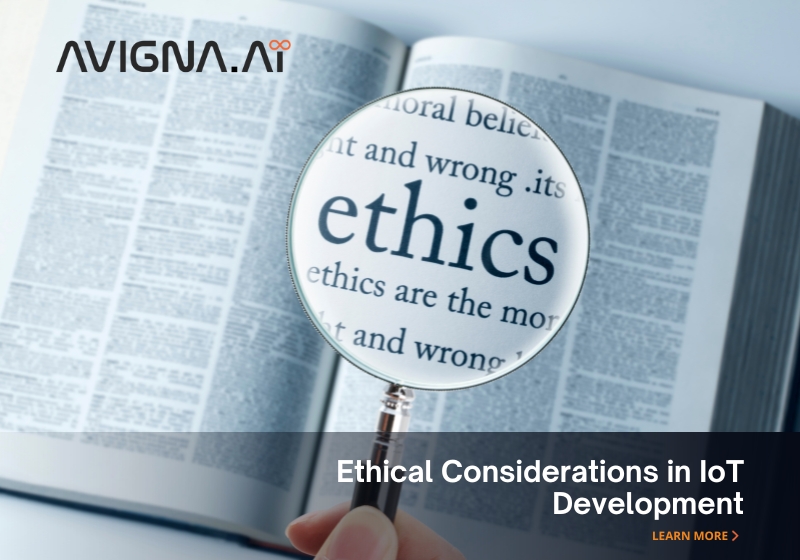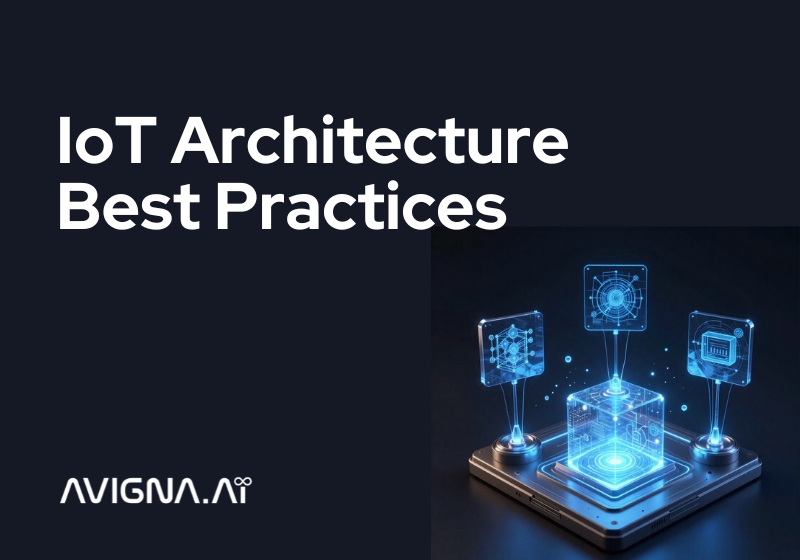Everything around us is getting smarter. From our homes to hospitals, transportation systems to warehouses – devices equipped with sensors and connectivity are infiltrating every part of our lives. Referred to as the Internet of Things (IoT), this extensive network of “devices offers convenience and valuable knowledge”.
Nevertheless, along with its potential, there arises an obligation. As IoT technologies continue to advance and become increasingly prevalent, it becomes crucial to tackle data privacy, security, transparency, and responsible utilization concerns.
The Allure and Risks of Hyperconnectivity
When we look into ethical considerations in IoT specifically, a few key themes that are worth exploring keep emerging. On the one hand, networked devices have incredible power to improve lives through increased automation, richer data insights, and more seamless experiences across different systems.
Given their potency to transform our lifestyle, it’s quite evident why consumers and businesses are enthusiastic about embracing these technologies. However, it’s equally important to recognize that we must prioritize safeguarding individuals and their data with the increasing collection and digital information sharing.
As more sensitive aspects of our lives get quantified into data points, from health metrics to home appliance usage, the potential for misuse and privacy violations escalates. The sheer volume of data generated through extensive IoT ecosystems also amplifies the risks of data breaches and cyber-attacks.
Personal Data and Privacy Concerns
A core ethical issue surrounding IoT tech is personal data privacy. IoT devices frequently collect, store, and transmit vast amounts of user data without the user’s full knowledge or consent. This data may include sensitive information like health vitals, location history, electricity usage patterns, and product preferences.
While this data enables useful functions and customization, it exposes users to potential exploitation if improperly secured and shared. Discrimination, manipulation, and loss of autonomy are dangers if personal IoT data falls into the wrong hands or gets used unethically.
Developers and manufacturers have an ethical responsibility to inform users about what data gets collected and implement proper consent procedures and privacy safeguards. Governments must develop comprehensive data protection regulations for the IoT space.
Security Vulnerabilities and Increased Surveillance
Lax security measures make IoT devices ripe targets for hacking, with the sheer scale of interconnected devices creating systemic risks. Critical infrastructure like power grids and water treatment facilities increasingly rely on sensor networks and internet-enabled control systems. A breach here could endanger entire communities.
On an individual level, IoT technologies grant access to a broad range of surveillance capabilities. Smart home systems with integrated cameras and microphones raise opportunities for spying and intrusive monitoring if security proves inadequate. The same vulnerabilities plague wearables and implants that track user vitals and activities.
Strong cybersecurity protocols and oversight are imperative to ensure bad actors cannot exploit IoT networks to endanger people’s safety and civil liberties. Developers and regulators must make security a priority, not an afterthought.
Informed Consent and Transparency
Gaining informed consent from users on what data gets collected and how it gets utilized is an ethical obligation for IoT companies. However, many IoT devices and ecosystems have opaque data practices that deny users full transparency.
Voice assistants, smart TVs, fitness trackers, and other IoT gadgets often gather behavioral insights and personal information without clearly notifying users or obtaining their consent. And even when consent is nominally taken, often through vague terms of service contract, it hardly constitutes informed permission.
Clear communication on what the technology does, highlights privacy risks, and ensures users understand and formally allow specific uses of their data is the ethical standard.
Suggested Reading: How 5G and IoT are transforming industrial operations?
Built-in Biases and Lack of Inclusiveness
In addition to overt data abuses, IoT systems can embed subtle biases that discriminate against marginalized groups. Many IoT technologies must demonstrate inclusiveness in their design, excluding certain populations from intended functionality.
For instance, facial recognition in smart cameras often struggles with accuracy for women and people of color. Data sets that train AI underlying these tools frequently lack diversity and lean heavily on able-bodied, white male faces. This introduces a bias that propagates inequality.
Inclusiveness, diversity, and fairness need to be foundational principles for IoT. Products shouldn’t entrench historical prejudice. Companies have an ethical duty to test functionality across varied populations and address problematic biases that creep into their technology.

Responsible Innovation and Social Impact
While IoT offers many societal benefits, developers, and companies must carefully consider its risks and implement responsible governance. Myopic pursuit of innovation without accounting for long-term social impacts is unethical.
For instance, increased automation through IoT risks worsening unemployment. And ubiquitous smart sensors risk eroding community roots and sense of belonging if used improperly. These potential detriments require measured consideration.
Those shaping the evolution of the IoT revolution must look beyond commercial incentives and work proactively to ensure its technologies equitably empower society.
Stewarding Ethics as Data Flows Expand
Even with foresight on design practices and oversight through regulation, responsible data use still depends greatly on how organizations govern information day-to-day. From different interviews with privacy experts in creating compliance materials and trust seals, accountability starts with leadership commitment through things like:
- Assigning dedicated data protection personnel
- Comprehensive privacy training programs
- Internal policies and controls around information access
- Rigorous oversight of sharing with third parties
- Prompt breach response planning
- Transparency reporting on handling requests
This goes beyond checking boxes – it demands a culture where data respect is second nature across teams. Systems should stand up to independent evaluations as well. Handling personal info right builds the trust that fuels business success and an open digital ecosystem.
A Connected Future Rooted in Ethics
From smart infrastructure to interactive wearables, the Internet of Things is transforming our daily experiences in ways unimaginable just a few years ago.
However, for IoT technologies to sustainably empower progress, developers, and decision-makers must prioritize building systems respecting fundamental privacy rights, security safeguards, and principles of informed choice.
We can only harvest IoT’s full rewards through conscious design with ethics at the fore while upholding humanistic values. With diligent cooperation across stakeholders, the connected world ahead can become one defined not just by wires and sensors but by shared care, responsibility, and trust.
At Avigna, we are committed to building a connected world. Email us at queries@avigna.ai to learn more about us. Join us on LinkedIn.



